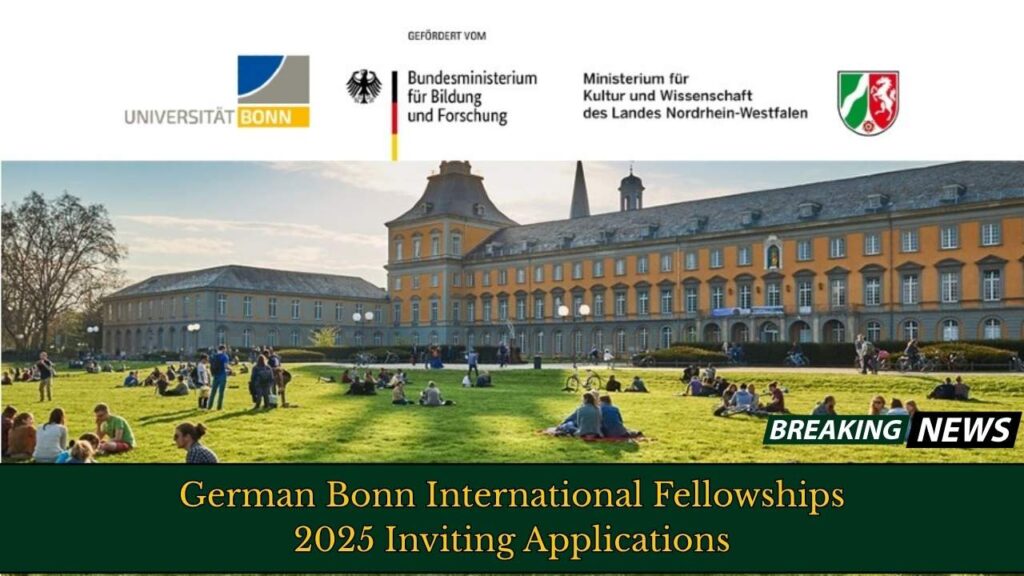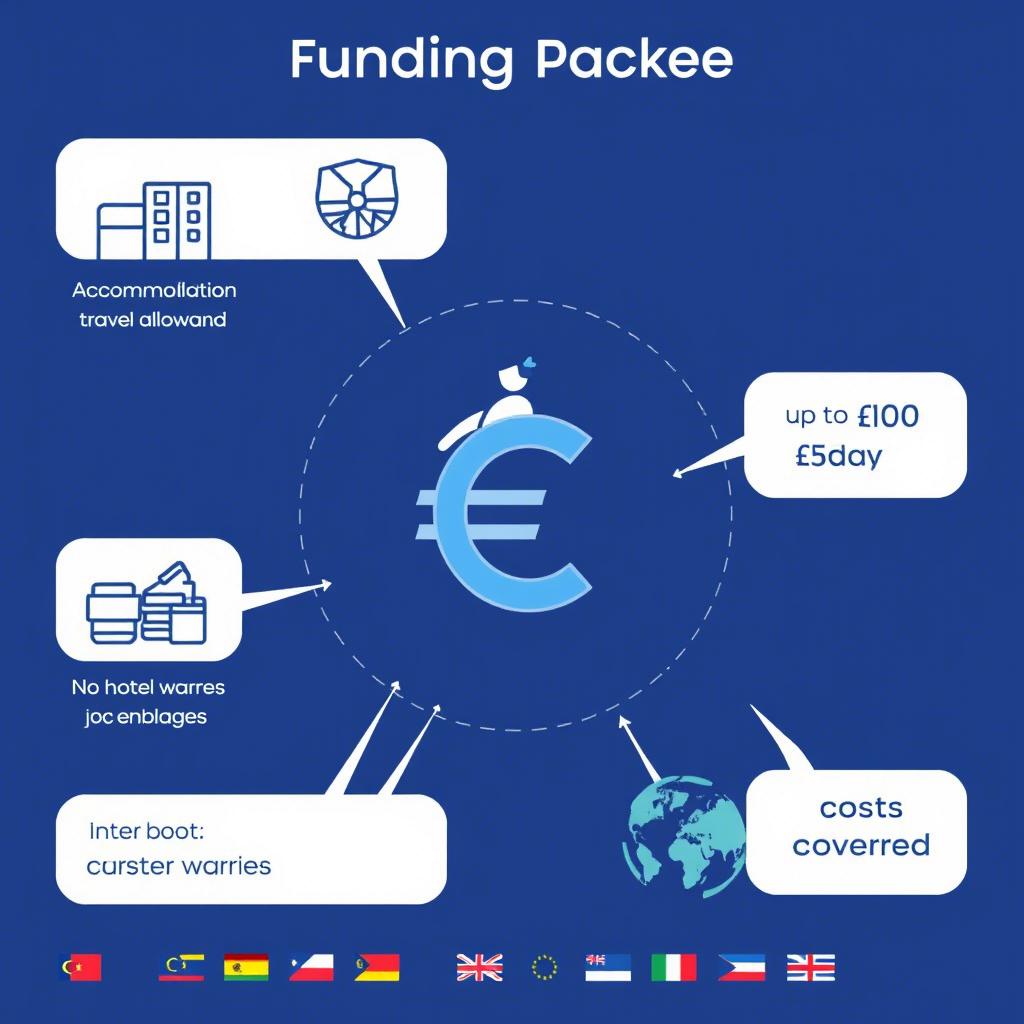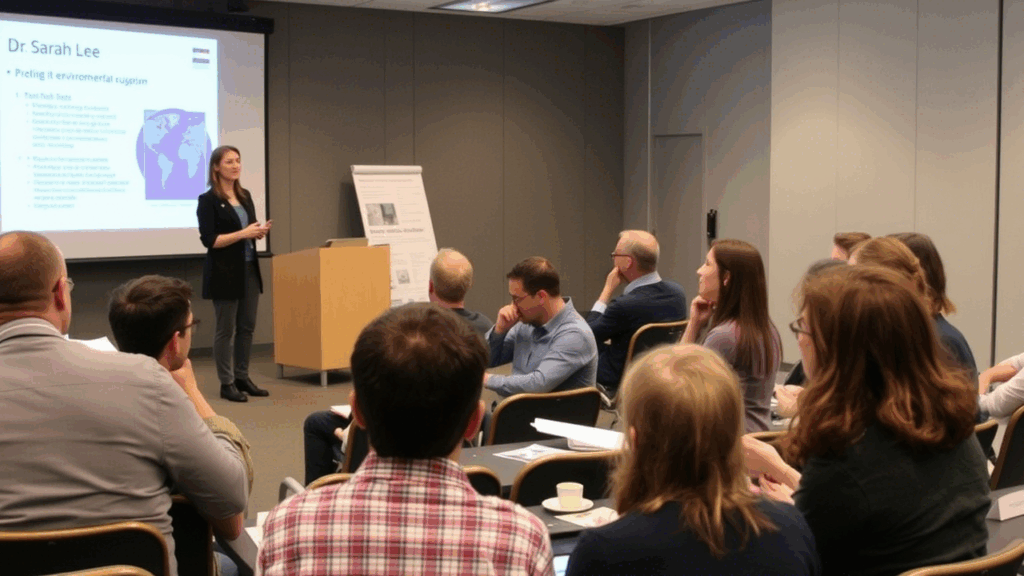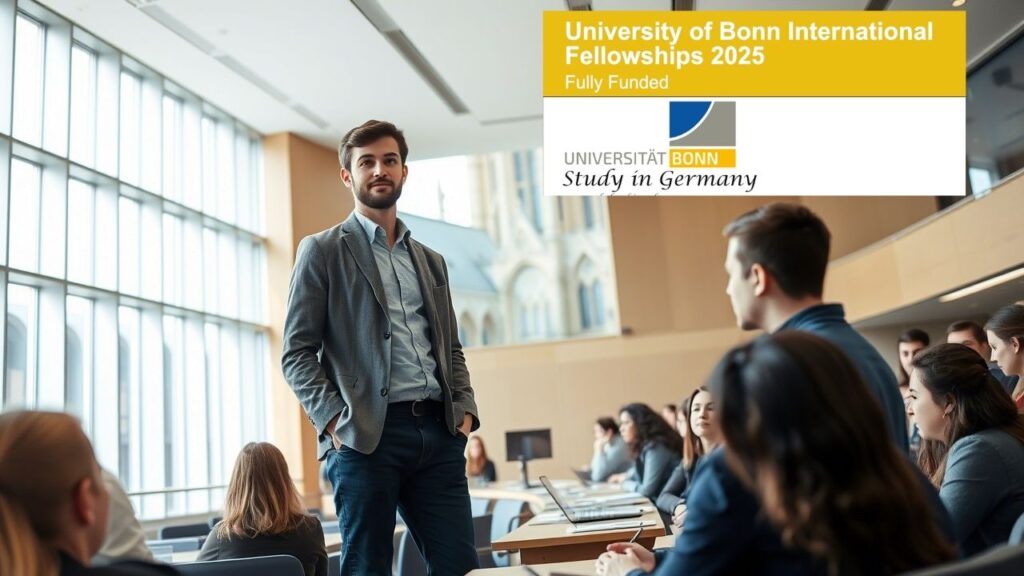Looking to take your research international without footing the bill? The Bonn International Fellowships 2025 might be the perfect opportunity you’ve been waiting for. Hosted by the prestigious University of Bonn in Germany, this short-term academic program is inviting researchers from outside Germany to spend up to 12 days on campus—fully funded.

Whether you’re a postdoc or a senior faculty member, this could be your chance to teach, collaborate, and network with some of Europe’s sharpest minds.
Let’s break it down in plain English, so you know exactly how to apply, what’s in it for you, and how not to mess it up.
| What’s it about? | Bonn International Fellowships 2025 |
|---|---|
| Who’s it for? | Postdoctoral researchers and senior faculty outside Germany |
| Where? | University of Bonn, Germany |
| Duration | Up to 12 days (includes arrival/departure) |
| What you get | €160 per day, travel allowance, €500 for organizing events |
| Deadline to apply | September 22, 2025 (5:00 PM CET) |
| Who applies? | Your host professor at Bonn applies for you |
| More info | Official website |
So, What’s the Big Deal?
Picture this: You fly to Germany, meet top-tier researchers, share your work, maybe even give a guest lecture—and you don’t pay a dime for the trip.
This isn’t just about travel. The Bonn Fellowship helps you:
- Boost your academic career with international exposure.
- Form lasting collaborations with European institutions.
- Experience life in Germany in one of its most research-friendly cities.
And trust us, Bonn isn’t just another German town—it’s a vibrant, historic city with a whole lot of academic energy. Think Beethoven meets cutting-edge research.
Step-by-Step: How to Apply?
Step 1: Find Your Academic Host at Bonn
The University of Bonn isn’t going to randomly pick you. You need a faculty host to invite you. That’s how the process starts.
Here’s how to do that:
- Head to the University of Bonn faculties page.
- Look for professors doing similar work to yours.
- Send them a thoughtful email: introduce yourself, mention your research, and pitch why your visit would be mutually beneficial.
- Attach your CV and a short summary of your research or project idea.
If they’re interested, they’ll agree to be your host—and then you’re off to the next step.
Step 2: Work with Your Host on the Application
Once your host is on board, they’ll submit the application on your behalf. You’re not doing the actual submission.
But you’ll need to help them put together:
- A 6-page proposal about your visit: What you’ll do, why it matters, how it helps the Bonn community, and what you hope will come from it.
- Your updated CV.
- A formal invitation letter (your host will write this).
- A budget sheet (Bonn gives you a template).
Remember: The more compelling your plan, the better your shot at being selected.
Who’s Eligible?
To apply, you must:
- Be working as a postdoctoral researcher or experienced faculty member.
- Be based outside of Germany.
- Have a solid research track record (publications, collaborations, past grants).
- Get an official invitation from a professor at the University of Bonn.
Bonus points if your research aligns with Bonn’s strategic goals or if your home university already has a partnership with them.
What’s in the Funding Package?
You won’t have to worry about hotel bills or overpriced German food. The fellowship is designed to take care of you:
- €160 per day to cover food, stay, and daily expenses.
- Travel allowance that varies depending on where you’re flying in from.
- Up to €500 to organize a public talk, workshop, or any cool academic event while you’re there.

If you play your cards right, this trip can become a serious career booster without costing you anything.
Real-Life Story: How One Fellow Made It Count?
Dr. Sarah Lee, an environmental scientist from MIT, was a Bonn Fellow in 2022. Here’s what she said:
“I gave a talk, joined two workshops, and ended up co-authoring a paper with a Bonn researcher. That 10-day visit turned into a 3-year project and two more trips. It changed the trajectory of my academic career.”

5 Common Mistakes to Avoid
We get it—academic applications can be tricky. Don’t fall into these traps:
- Not contacting a host early – No host, no application. Start now.
- Submitting vague proposals – Be specific. Show impact.
- Missing the deadline – Remember, Germany runs on Central European Time.
- Forgetting budget accuracy – Use their Excel template exactly.
- Language issues – Ask your host or a colleague to proofread.
How Does Bonn Stack Up Against Other Fellowships?
| Program | Duration | Funding | Host Required? | Competition Level |
|---|---|---|---|---|
| Bonn Fellowship | 12 days | €160/day + travel + €500 | Yes | Moderate |
| Fulbright Scholar | 3–6 months | Full coverage | Yes | High |
| DAAD Grant | 1–6 months | Full/Partial | Yes | High |
| Marie Curie | 1–2 years | Full salary | No (European host applies) | Very High |
If you’re looking for a short, impactful, and low-risk academic adventure—Bonn is the way to go.
Important Dates
- Application deadline: September 22, 2025 (5:00 PM CET)
- Results out: December 2025
- Visit window: Anytime in 2026 (January through December)
FAQs
Do I need to know German?
Not at all. English works just fine.
What if I’ve applied before and didn’t get in?
You can apply again, as long as your host supports it.
Can I bring my family?
Not covered by the funding, but yes—if you can afford it and plan it with your host.
How many people get selected?
It varies every year, but competition is reasonable. A strong proposal goes a long way.
Long-Term Benefits You Can Expect
- Global collaborations that can turn into funded research.
- Future sabbaticals or return invites.
- Big credibility boost on your academic résumé.
- Connections across the EU academic scene.








